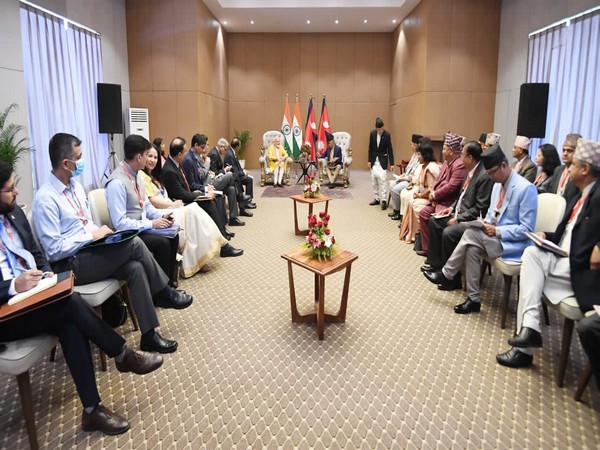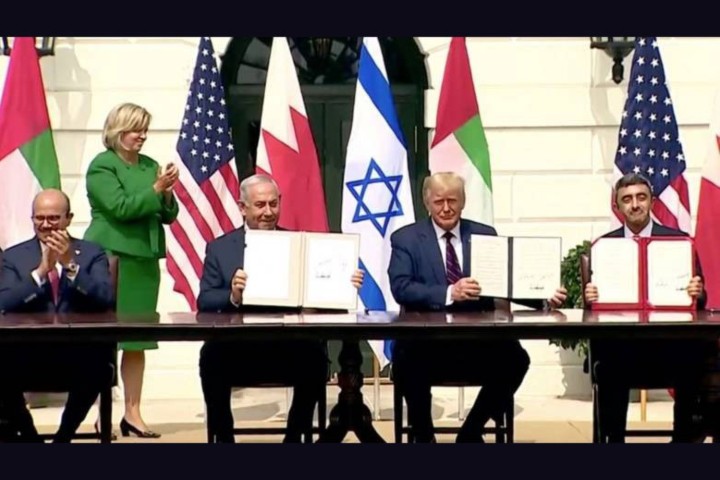2022 could be the year of free trade pacts for India
India’s export performance has never been as good as it has been in 2021. In the first 11 months of the year, exports exceeded $354 billion, over $57 billion (or 19.2 percent) higher than the previous best for the same period, which was achieved in 2019. Imports, too, have touched a record high of $513 billion, almost 9 percent above the previous high of $472 billion in 2018. Importantly, higher imports could well be the sign that the economy is on course for a sustained recovery in 2022.
Buoyed by rapid expansion of exports in the earlier months of the year, the government had set an export target of $400 billion for fiscal 2021-22. A similar target has also been set in the past, but India’s exports have not gone beyond $330 billion (in 2018-19). In the first 8 months of the current fiscal (April-November 2021), exports had reached well over $263 billion, exceeding the previous high for this period by almost 22 percent. Although in November 2021 exports were at their lowest level during this fiscal year, there is every likelihood that the $400 billion target will be reached.
Driving India’s export surge were five major product groups — metals, ores, agricultural products, electronics, and petroleum products. Specific products within metals and agricultural products performed exceptionally well, which include iron and steel, copper, non-basmati rice, sugar, and wheat. Exports of each of these products have more than doubled during January-October 2021, as compared to the level in the corresponding period during 2019. Raw cotton and to a lesser extent cotton yarn, also experienced surge in exports in current year.
India’s exports to most of its major destinations touched record levels during 2021. Exports to the largest destination, the United States (US), increased to $58.7 billion, by almost a third as compared to the level in 2019. Even more impressive was India’s exports to China, the third largest destination, where the increase was more than 42 percent during the same period. Bangladesh emerged in the top 5 export destinations for the first time; India’s exports to its neighbour increasing by over 67 percent when compared with 2019 figures. However, exports to the second largest export destination, namely, the United Arab Emirates (UAE), declined in the midst of the overall surge.
Products triggering the export surge in the major destinations varied considerably. Among India’s major exports to the US, petroleum products, non-electrical machinery and organic chemicals expanded the fastest in 2021. On the other hand, higher exports of metals, including iron and steel, copper, and aluminium exports, besides cotton and ores, allowed India to increase its presence in China. Bangladesh emerged as one of India’s largest destinations largely due to higher exports of cotton and cereals (both rice and wheat).
Backed by this impressive export performance, a confident India is now seeking to forge several free trade agreements (FTAs). This is a complete turnaround from 2019 when India had walked out of the Regional Comprehensive Economic Partnership, the mega-regional trade agreement of East Asia.
The first of India FTAs could be with the UAE, which was once its largest export destination. However, with the decrease in India’s oil imports, trade with the UAE has lost momentum over the past several years. As the major gateway to the Gulf and, more importantly, the African continent, increase in trade ties with the UAE could provide further buoyancy to India’s exports.
India has also begun discussions for a possible FTA with the United Kingdom (UK), which is seeking to overcome the handicap it could suffer in the post-Brexit phase by rapidly forging close trade links with partner countries. Since it left the European Union less than two years back, the UK has already formalised 40 FTAs with its trade partners. It is showing similar urgency to formalise an FTA with India, and therefore, the New Year could well see heightened engagement between the two countries for closer trade relations.
For several years, speculation has been rife about a possible FTA between the US and India. But the dealings of the Trump Administration with India, especially the withdrawal of the GSP (generalised system of preferences) that India had enjoyed since the inception of the scheme and the initiation of the tariff war, resulted in a trust deficit that could not be bridged.
However, the Joe Biden administration appears to be in a conciliatory mood, as was evident from the recent visit of the US Trade Representative, Katherine Tai. The next steps the two countries take would be decide whether an India-US trade deal is possible.
(About author: Biswajit Dhar is Professor, Centre for Economic Studies and Planning, School of Social Sciences, Jawaharlal Nehru University, New Delhi. Views are personal and do not represent the stand of this publication.)
Source: moneycontrol
31 Dec 2021,17:30
















 Live Tv
Live Tv


